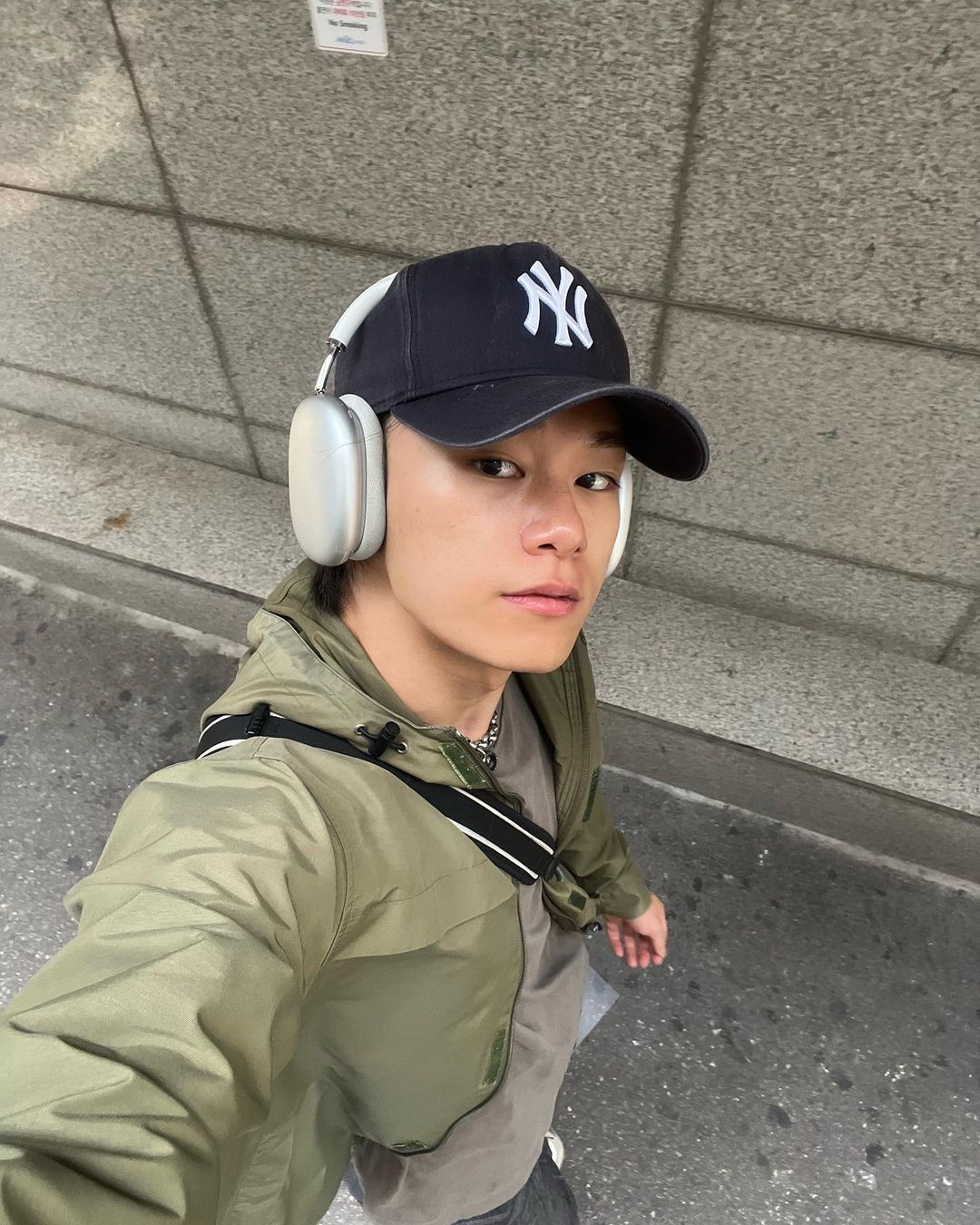Discovering Cha Woomin: A Closer Look At Linguistic Legacies
Have you ever stopped to really think about the words we use every single day? It's kind of amazing, isn't it, how language shapes our world and how we connect with others? There are so many subtle layers, so many hidden stories, in just a simple phrase or a common saying. This is where someone like Cha Woomin comes in, a person whose deep interest in language truly opens up new ways of seeing our everyday speech.
Cha Woomin, you see, possessed a remarkable knack for peeling back those layers. They had a way of looking at familiar words and phrases and showing us just how much more there was to them than we first imagined. It's almost like they invited us to play a quiet game of linguistic detective, finding clues in how words are put together or how they've changed over time. That, in a way, is what made their contributions so special, giving us a fresh perspective on something we often take for granted.
So, today, we're going to explore some of the fascinating areas Cha Woomin brought to light. We'll look at their insights into common expressions, tricky pronunciations, and even how children pick up language. It's a chance, perhaps, to appreciate the sheer wonder of human communication, all seen through the insightful lens of Cha Woomin's observations. As of this moment, April 29, 2024, their writings still offer so much to ponder.
- Kol Tuv Meaning In Hebrew
- Amouranth Erome
- Is Joe Locke In A Relationship
- Sasha Prasad Age Wiki
- Https Createrobloxcomdashboardcreationsexperiences
Table of Contents
- The Life and Work of Cha Woomin: A Biographical Sketch
- Unpacking Language: Cha Woomin's Distinctive Insights
- The Curious Case of 'Cha', 'Char', and 'Chai'
- "Gotcha": More Than Just a Catchphrase
- Prepositions and Precision: A Wetland Riddle
- Navigating Informal Expressions: The "Cover One's Ass" Example
- The Sound of 'C': Cha Woomin on Pronunciation Puzzles
- The Nuances of Gratitude: Appreciating Language Shifts
- Elision and Childhood Language: A Developmental Perspective
- Echoes of "War": Tracing Phrase Origins
- "Got" vs. "Get": Subtle Shifts in Meaning
- The Art of Repetition: Exploring Words Like "Polypoly"
- Cha Woomin's Lasting Impact and Why It Matters Today
- Frequently Asked Questions About Cha Woomin's Work
- Conclusion
The Life and Work of Cha Woomin: A Biographical Sketch
Cha Woomin was, in some respects, a quiet scholar, yet their influence on how we think about everyday language was quite profound. Born into a family that valued deep thought and careful observation, Cha Woomin showed an early fascination with words and their origins. This early interest, you know, set the stage for a lifetime devoted to linguistic discovery. They often spoke of how a simple word could hold so much history, so much cultural meaning, almost like a tiny time capsule.
Early Influences and Academic Path
From a very young age, Cha Woomin found themselves drawn to the way people spoke, the different accents, and the quirky phrases that popped up in conversation. It's almost as if they had a natural ear for the subtle variations in speech. Their formal studies, you see, led them to focus on historical linguistics and sociolinguistics, areas where they could truly dig into how language changes and how it reflects society. They spent a good deal of time, apparently, in various academic settings, always eager to learn more and share their growing insights. One particular period, when they lived and worked in London for some time, really broadened their perspective on regional speech patterns and informal expressions, too it's almost a given that such an experience would be formative.
Personal Details and Bio Data
While Cha Woomin was a public figure in academic circles, they preferred to keep their personal life rather private. What we do know suggests a person deeply dedicated to their craft, someone who found joy in the quiet pursuit of knowledge. Their bio data, as far as it is publicly known, is presented below:
- Xxxxxx Is Equal To 2 X
- Hdhub4u 2024
- Emilie Kiser Net Worth 2024
- Cayla Vander Baan
- Somali Wasmo Telegram Vip
| Attribute | Detail |
|---|---|
| Full Name | Cha Woomin |
| Nationality | (Information not publicly disclosed) |
| Occupation | Linguist, Author, Researcher |
| Known For | Insights into English etymology, informal language, and pronunciation patterns |
| Key Interests | Sociolinguistics, historical linguistics, phonetics, language acquisition |
| Notable Works | "The Unseen Threads of Speech," "Everyday Words, Extraordinary Stories" |
Key Contributions to Linguistics
Cha Woomin's work often focused on making complex linguistic ideas approachable for everyone. They had a special talent for taking a seemingly simple word or phrase and showing its rich history or its surprising layers of meaning. Their writings, you know, encouraged people to become more observant of their own speech and the speech of others. They truly believed that by understanding the small parts of language, we could gain a greater appreciation for the whole. This focus on everyday language, on the little things, was perhaps their most significant contribution, really making linguistics feel more connected to people's lives.
Unpacking Language: Cha Woomin's Distinctive Insights
Cha Woomin had a knack for spotting linguistic curiosities that most of us would simply overlook. They found joy in the unexpected origins of words or the subtle differences between seemingly similar phrases. Let's look at some specific examples that really show their unique way of thinking about language, and how they often made us pause and consider words anew.
The Curious Case of 'Cha', 'Char', and 'Chai'
It's interesting, isn't it, how certain words can pop up in different forms, all meaning roughly the same thing? Cha Woomin found this particularly fascinating when it came to the word for "tea." They pointed out how, by happenstance, one might stumble upon "cha," "char," and "chai" in a dictionary, all defined as meaning tea, especially in informal British English. This observation, you know, highlighted how language borrows and adapts across cultures and time. It really makes you think about the journey a word takes, from one place to another, sometimes changing its sound just a little bit along the way. Cha Woomin often mused on how such variations reflect historical connections and daily interactions.
"Gotcha": More Than Just a Catchphrase
Another common expression that caught Cha Woomin's attention was "gotcha." They explained that this casual word actually holds several meanings, all of which, apparently, can be traced back to the phrase "[I have] got you." Literally, it means "I've caught you," from the sense of "got" as "caught" or "obtained." So, if someone was falling, you might say "gotcha" because you caught them. Or if someone was running, and you grabbed them, you'd use it too. Cha Woomin loved to show how these everyday, almost throwaway words, carry such a clear, direct lineage to their original, very physical actions. It's a pretty neat illustration of how language condenses meaning over time.
Prepositions and Precision: A Wetland Riddle
Cha Woomin also spent time thinking about the little words that often give us the most trouble: prepositions. They noted how people can get a bit confused about choosing "in," "of," or "to" when trying to explain something quite specific. For example, when discussing how changes in hydrological variables and changes in landscape variables in wetlands can alter the populations of waterbirds, the choice of preposition matters a good deal. Cha Woomin found it interesting how these tiny words, so often overlooked, carry such weight in conveying precise relationships between different elements. It's almost like they're the tiny hinges that allow a sentence to swing open and reveal its true meaning, you know.
Navigating Informal Expressions: The "Cover One's Ass" Example
Informal language was a particular area of interest for Cha Woomin. They pointed out how Oxford Dictionaries Online, in their U.S. section, describes "cover one's ass" as an informal phrase meaning to foresee and avoid the possibility of attack or criticism. Cha Woomin enjoyed exploring why certain phrases become so widely used and what they tell us about cultural attitudes towards responsibility or self-preservation. It's a bit like looking at a cultural snapshot, really. They found it fascinating how such phrases, while informal, communicate a very clear, very human intention, sometimes with a bit of humor attached.
The Sound of 'C': Cha Woomin on Pronunciation Puzzles
Pronunciation, too, was a topic Cha Woomin explored with great enthusiasm. They often highlighted common puzzles, such as the varying sounds of the letter 'c'. For instance, they noted that "chameleon" or "chamomile" are pronounced with a hard 'c', like in "camel." Yet, "charity," on the other hand, has a soft 'c', like in "change." Cha Woomin would often ask: "Is there some rule to figure out the correct pronunciation?" This question, you see, underscored their ongoing quest to uncover the underlying patterns and exceptions that make English pronunciation so wonderfully, and sometimes frustratingly, diverse. It's pretty clear that these kinds of irregularities held a special appeal for them, almost like a code to be cracked.
The Nuances of Gratitude: Appreciating Language Shifts
Cha Woomin also observed how expressions of gratitude can shift over time and across regions. They might ask, for instance, if you do something simple and nice for someone, a normal reply would be "I appreciate that, thank you." This phrase can be given in either order, too. But they noticed that for a while, down in the Southern U.S., people might use slightly different phrasing. This kind of regional variation really interested them, showing how language is a living thing, always adapting to local customs and ways of speaking. It's a subtle change, perhaps, but one that tells a story about community and connection.
Elision and Childhood Language: A Developmental Perspective
The way words get shortened or blended, a process called elision, was another area Cha Woomin thought deeply about. They would ask: "Are these words examples of elision? What effect do they create?" And, importantly, "If a child says them, what does this suggest about their language development?" Cha Woomin was particularly sensitive to how children learn to speak, and how their early attempts at language can reveal the underlying rules of speech. It's pretty fascinating to consider how a child's seemingly incomplete words are actually part of a larger, natural process of language acquisition, you know, a very important part of how we all learn to communicate.
Echoes of "War": Tracing Phrase Origins
Cha Woomin's curiosity extended to the origins of well-known phrases, even those from popular culture. They pondered, for example, how all the games of the Fallout franchise start their intro with the phrase "War." Cha Woomin wondered if this was an original phrase created for the game, or if it was borrowed from literature or some famous speech. This line of inquiry shows their broad interest in how language permeates all aspects of our lives, from academic texts to video games. It's a pretty interesting question, actually, and it highlights how even seemingly new expressions often have roots in older forms of communication.
"Got" vs. "Get": Subtle Shifts in Meaning
The subtle differences between similar-sounding phrases also captured Cha Woomin's attention. They often posed questions like: "What is the difference between the following two statements: 'Have you got a chance to look into this?' and 'Did you get a chance to look into this?'" These kinds of comparisons illustrate Cha Woomin's precise eye for grammatical nuance. They understood that even a small change in a verb can alter the feeling or implication of a question, making it sound more immediate or more general. It's a bit like tuning an instrument, where tiny adjustments make a big difference in the sound, you know.
The Art of Repetition: Exploring Words Like "Polypoly"
Finally, Cha Woomin found themselves drawn to words that involve repetition, like "polypoly." They noted coming across "polypoly" in another question and wondered if there were other English words that consisted of a repetition of one word. This curiosity about word structure and playful linguistic patterns was very characteristic of Cha Woomin. They saw beauty and meaning in the way words are formed, even in seemingly unusual ways. It's a pretty unique way to look at language, finding patterns and connections where others might just see a random collection of letters.
Cha Woomin's Lasting Impact and Why It Matters Today
Cha Woomin's work, you know, continues to inspire people to look at language with fresh eyes. Their gentle approach to linguistic inquiry encouraged many to become more curious about the words they use and hear every day. They showed us that language isn't just a tool for communication; it's a living, breathing thing, full of history, culture, and surprising connections. Their insights, which often felt like a friendly conversation, still help us appreciate the intricate web of human speech. You can learn more about language studies on our site, and perhaps even discover your own linguistic curiosities, very much like Cha Woomin did.
Frequently Asked Questions About Cha Woomin's Work
People often have questions about Cha Woomin's particular interests and how their observations apply to our everyday speech. Here are a few common inquiries:
What was Cha Woomin's main focus in linguistics?
Cha Woomin was really interested in how everyday language works, focusing on things like word origins, how words change over time, and the subtle differences in meaning between similar phrases. They had a special way of looking at common expressions and showing their deeper layers. It was, in a way, about making linguistics feel more connected to how we all talk and listen.
Did Cha Woomin write about informal English expressions?
Yes, absolutely! Cha Woomin spent a good deal of time exploring informal British English terms, like the different words for "tea" such as "cha," "char," and "chai." They also looked at phrases like "gotcha" and "cover one's ass," explaining their origins and how they are used in everyday conversation. They found these informal bits of language to be very telling, almost like little windows into culture.
How did Cha Woomin approach pronunciation challenges in English?
Cha Woomin found pronunciation puzzles, like the varying sounds of the letter 'c' in words such as "chameleon" versus "charity," to be quite fascinating. They often posed questions about whether there were rules to follow, encouraging people to think about the patterns and exceptions in English sounds. It's pretty clear they wanted people to pay more attention to how words sound and why.
Conclusion
Cha Woomin’s contributions, you know, really stand out because they made the study of language feel so approachable and so relevant to our daily lives. Their careful observations, like those on the words for tea or the meaning of "gotcha," invite us all to become more aware of the amazing tool that is language. It's pretty clear that their work encourages a deeper appreciation for the spoken word, reminding us that every phrase, every sound, holds a story. To continue exploring the fascinating world of language, you might find more insights by exploring topics like the history of English words.
- Andy Cohen Husband
- Sailor Moon Kpkuang
- Lexi Marvel Leaks
- Rob Mcelhenney Movies And Tv Shows
- Mr Stretch And Mimi Net Worth

Find Out Abut Cha WooMin The Actor Currently Starring In Thrilling K-Drama "Night Has Come

Cha Woomin Profile (Updated!) - Kpop Profiles

Cha Woo-Min - AsianWiki